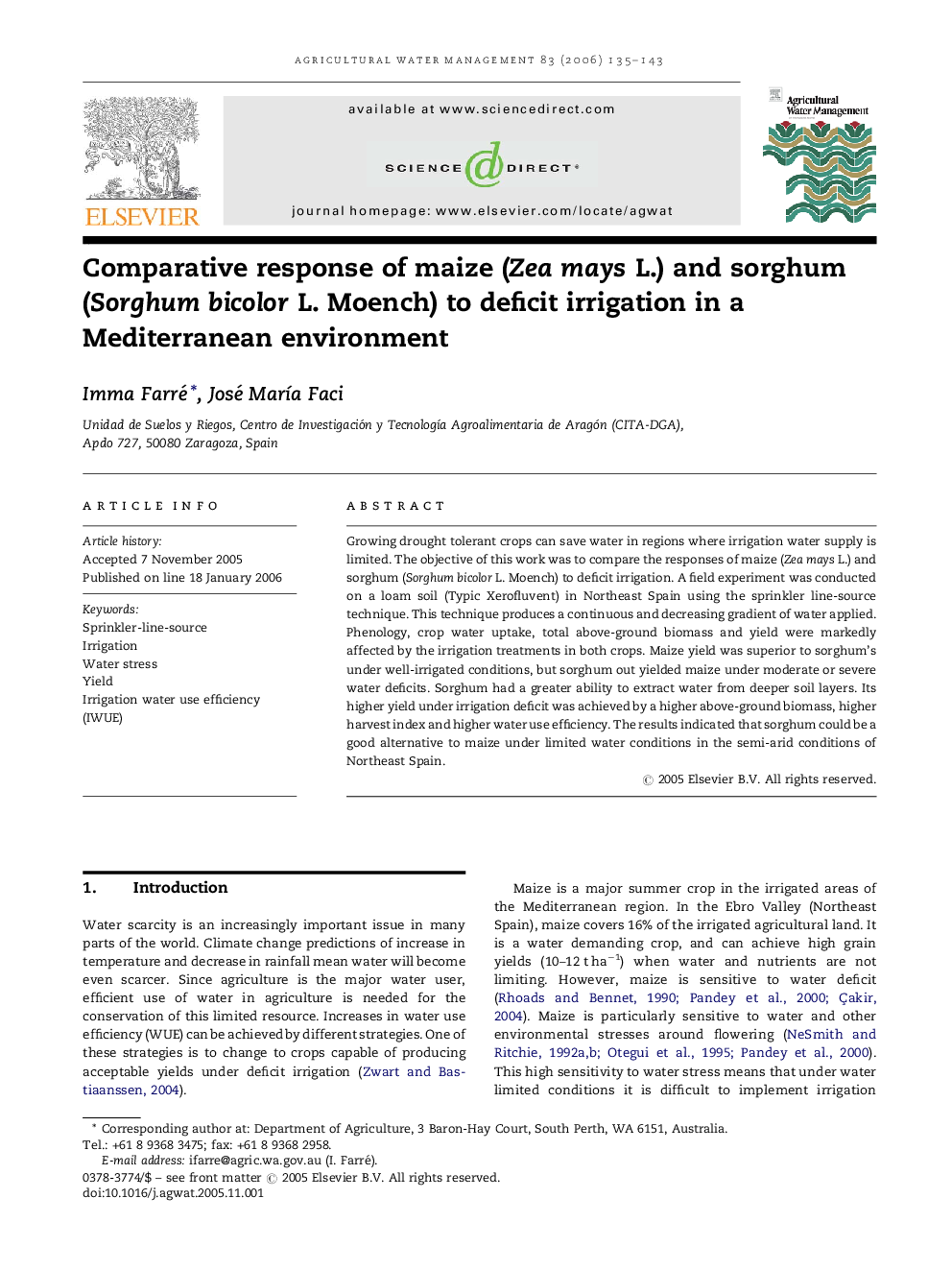| Article ID | Journal | Published Year | Pages | File Type |
|---|---|---|---|---|
| 4480677 | Agricultural Water Management | 2006 | 9 Pages |
Abstract
Growing drought tolerant crops can save water in regions where irrigation water supply is limited. The objective of this work was to compare the responses of maize (Zea mays L.) and sorghum (Sorghum bicolor L. Moench) to deficit irrigation. A field experiment was conducted on a loam soil (Typic Xerofluvent) in Northeast Spain using the sprinkler line-source technique. This technique produces a continuous and decreasing gradient of water applied. Phenology, crop water uptake, total above-ground biomass and yield were markedly affected by the irrigation treatments in both crops. Maize yield was superior to sorghum's under well-irrigated conditions, but sorghum out yielded maize under moderate or severe water deficits. Sorghum had a greater ability to extract water from deeper soil layers. Its higher yield under irrigation deficit was achieved by a higher above-ground biomass, higher harvest index and higher water use efficiency. The results indicated that sorghum could be a good alternative to maize under limited water conditions in the semi-arid conditions of Northeast Spain.
Keywords
Related Topics
Life Sciences
Agricultural and Biological Sciences
Agronomy and Crop Science
Authors
Imma Farré, José MarÃa Faci,
